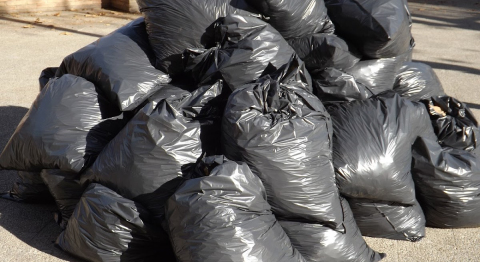Geen ggo-maïs op Hongaarse grond
Wetenschappelijke gegevens, gepubliceerd door Oostenrijkse en Hongaarse wetenschappers, tonen aan dat die ggo-maïs wel degelijk een negatief effect heeft op planten en dieren.
Europese boeren die ggo-vrij willen verbouwen, zijn in toenemende mate blootgesteld aan contaminatie door ggo-gewassen, zo blijkt uit een rapport dat gisteren werd gepubliceerd door Greenpeace en GeneWatch.
Greenpeace International is dan ook erg tevreden met de beslissing van de EU-Milieuministers.
Three times a loser
GMO vote: EU Commission defeated for the third time on GMOs
Brussels, 20 February 2007 – For the third time [1], EU governments have blocked a European Commission proposal to force a European country to accept the cultivation of GMOs on its soil.
Greenpeace welcomes the vote by EU Environment Ministers today in support of Hungary’s right to protect its nature and population from GM crops, in this case a Monsanto maize known as MON810, engineered to contain a toxin and kill pests.
“EU Environment Ministers took a bold decision today in defence of the environment and in line with European public opinion. We look forward to the day when the European Commission also puts defence of the public interest before the interests of US agribusiness and its lobbyists in Brussels and at the WTO,” said Marco Contiero, policy adviser on GMOs at Greenpeace European Unit.
Scientific evidence published by Austrian and Hungarian authorities has shown that MON810 maize is likely to have harmful effects on European plants and animals.
European conventional and organic farmers are already increasingly exposed to contamination by genetically engineered crops, revealed a report published yesterday by Greenpeace and GeneWatch UK [2], which catalogues a list of contamination incidences around the world.
Greenpeace defends the right of EU countries to take national measures when there are doubts about the safety of GM crops or concerns about the contamination of conventional and organic crops.
“Our only regret today is that the EU does not operate according to the policy: ‘three strikes and you’re out’”, added Marco Contiero.
NOTES
1. In two past instances, in June 2005 and December 2006, Environment Ministers rejected identical Commission proposals to force Member States to lift national bans on the growing of certain genetically modified organisms (GMOs).
2. GeneWatch UK is a not-for-profit group that monitors developments in genetic technologies from a public interest, environmental protection and animal welfare perspective.
Maak MO* mee mogelijk.
Word proMO* net als 2798 andere lezers en maak MO* mee mogelijk. Zo blijven al onze verhalen gratis online beschikbaar voor iédereen.
Meer verhalen
-
Nieuws
-
Analyse
-
Nieuws
-
Nieuws
-
Nieuws
-
Nieuws









 Oxfam België
Oxfam België Handicap International
Handicap International